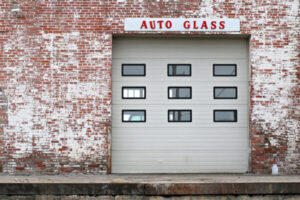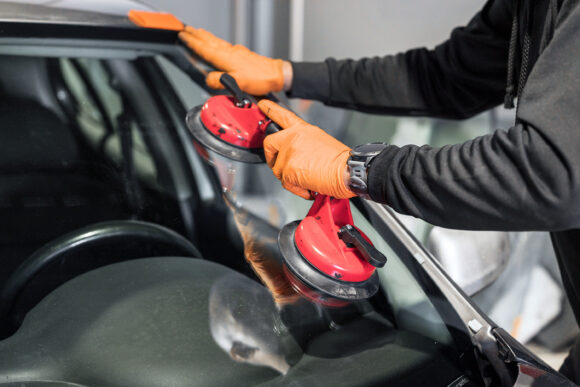The Florida Legislature earlier this year struck a mighty blow for auto insurers in their years-long fight against windshield repair shops, ending assignment-of-benefits and the practice of offering gifts to insureds.
Now, the Florida Supreme Court could soon decide another battle in the war and answer the question of whether insurance companies have a right to sue auto-glass repair shops in AOB cases.
The U.S. 11th Circuit Court of Appeals this week certified a question to the Florida Supreme Court, asking it to answer, once and for all, if Florida’s Motor Vehicle Repair Act grants an auto insurer a cause of action – or does the law limit lawsuits only to actual customers, as the wording of the law suggests.
“After careful review, and with the benefit of oral argument, we could find no decision from the Supreme Court of Florida, Florida appellate courts, or this Court answering the issues in this appeal,” a panel of the 11th Circuit wrote. “Moreover, the issues in this appeal will impact thousands of windshield repair claims.”
The question stems from a case that has been up and down in Florida courts for more than four years: GEICO Insurance companies vs. Glassco Inc. and its owners. Glassco is a prominent repair company in Florida, but it subcontracts most of its windshield repair and replacement work, the 11th Circuit judges explained.
Starting in 2016, Glassco repaired or replaced hundreds of windshields for drivers who had assigned the insurance benefits to the repair shop, at no cost to the insured. GEICO’s auto policies granted its insureds the discretion to select a repair shop to repair a windshield, the court noted.
The policies also stated that the insurer would reimburse the repair shops at the “prevailing competitive price” based, in part, on the National Auto Glass Specifications. In 2012, though, GEICO had circulated a letter to shops, saying it would only pay a deeply discounted amount of the NAGS standard pricing.
Glassco, from 2016 to 2019, completed 1,773 repairs and filed claims with GEICO. The insurer paid only a smaller amount of the invoice, prompting Glassco to file suit in small claims court. The court found that GEICO was wrong on 11 of the claims and that the prevailing competitive price was, in fact, more than what the insurance company paid. Some 53 other cases settled, but 1,709 remained pending.
That’s when GEICO decided to play hardball with the repairers and filed suit against Glassco in federal court, arguing that the shop had committed fraud and had violated the state’s motor vehicle repair law. That act was adopted in 1980 and has been amended a few times since then. The insurer asked for $700,000 in damages – the amount GEICO had paid at the discounted rate to the repair firm.
The insurance giant also argued Glassco had made other errors, such as failing to provide written estimates and written invoices to the insureds and failing to properly notify customers that the work would be subcontracted to other shops.
Glassco and owners, represented in part by Tampa attorney Michael Germain and Miami lawyer Howard Levine, pointed out to the federal district court that the Repair Act grants a private right of action only to customers, and GEICO is not a customer.
The district court for the Middle District of Florida agreed. The trial judge went further: “Even assuming Glassco violated the Repair Act, the district court concluded that Glassco’s violations (1) were at most technical violations of the Repair Act and (2) did not render Glassco’s claims non-compensable vis-à-vis GEICO,” the appeals court explained.
The district court also noted that GEICO is not without remedy, but can seek a civil penalty against the repair shops through the state Department of Agriculture and Consumer Services.
GEICO appealed to the 11th Circuit, arguing that previous court rulings have allowed a looser interpretation of the word “customer,” granting parties involved in a transaction the ability to take legal action.

GEICO also argued that a quirk in the wording of the Repair Act creates a hole in the law. “Because defendants never provided anyone with the requisite written estimate, no one was able to sign an estimate, and therefore no one could ever bring a private action against defendants,” the appeals court wrote. That essentially insulates repair shops from liability, said the insurance company’s attorneys, led by Max Gershenoff, of New York. The lower court construed the Repair Act in a way that undermines its purpose, he argued.
The appeals court judges, Adalberto Jordan, Robin Rosenbaum and Frank Hull, ruminated on the nature of windshield repairs in Florida, and seemed to side to some degree with the auto-glass plaintiffs. The judges noted that insurers really have little say in the matter: An insurance company in Florida cannot require insureds with comprehensive coverage to pay a deductible; and policyholders have sole discretion to select a repair shop.
“The remedial nature of the Repair Act—to protect consumer customers from oral estimates and misunderstandings— is arguably not designed to protect insurers, such as GEICO,” the appellate court wrote in its Nov. 7 opinion.
But the federal judges said they, like the district court, had little true guidance on that and no binding precedent to apply, and clarification is needed.
 “Principles of federalism and comity counsel us not to attempt to divine the answers to these challenging and important questions of Florida statutory law,” but to ask the state Supreme Court for help.
“Principles of federalism and comity counsel us not to attempt to divine the answers to these challenging and important questions of Florida statutory law,” but to ask the state Supreme Court for help.
Besides the question of whether an insure has a cause of action in this situation, the 11th Circuit also asked the state justices to weigh in on whether the claimed violations of the Repair Act void the shop’s invoice altogether and bar the shop from being paid any of its invoiced amounts by the insurance company.
GEICO’s attorney, Gershenoff, of the Rivkin Radler firm, declined to comment and another GEICO lawyer in the case could not be reached. Attorneys for the repair shop also could not be reached Wednesday.
Going forward, windshield repair assignment-of-benefit disputes in Florida will likely become fewer and fewer. The Florida Legislature in May of this year approved Senate Bill 1002, which ended AOBs for auto glass repair, after insurers complained for years that the arrangements had encouraged repairers to jack up prices then file excessive amounts of lawsuits against auto insurance companies.
Was this article valuable?
Here are more articles you may enjoy.


 Credit Suisse Nazi Probe Reveals Fresh SS Ties, Senator Says
Credit Suisse Nazi Probe Reveals Fresh SS Ties, Senator Says  US Will Test Infant Formula to See If Botulism Is Wider Risk
US Will Test Infant Formula to See If Botulism Is Wider Risk  Navigators Can’t Parse ‘Additional Insured’ Policy Wording in Georgia Explosion Case
Navigators Can’t Parse ‘Additional Insured’ Policy Wording in Georgia Explosion Case  One out of 10 Cars Sold in Europe Is Now Made by a Chinese Brand
One out of 10 Cars Sold in Europe Is Now Made by a Chinese Brand 